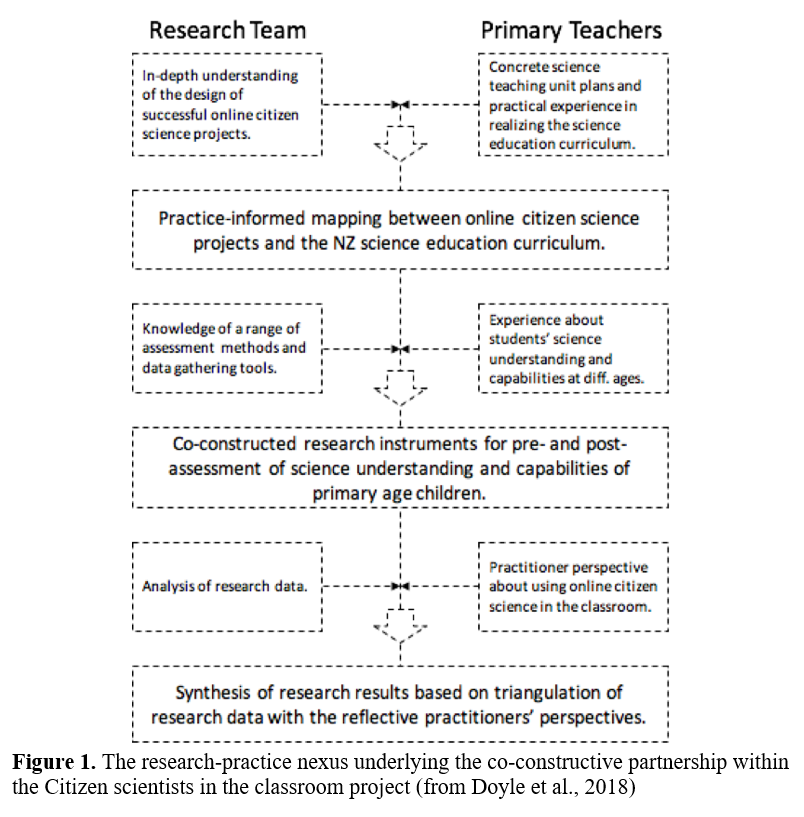Building a Positive Future for Science Education through Teacher-Researcher Partnerships
Main Article Content
Abstract
As a science education researcher and the director of a large online science education resource – The New Zealand Science Learning Hub – I am really interested in the intersection between science education research and practice. I often find myself wondering how teachers and researchers can be supported to work together to think about, and shape, the future of science education. In this paper, I draw on examples from two projects to showcase the benefits that can arise when teachers and researchers work proactively together, and to demonstrate opportunities for extending impact in the digital age. My hope is to inspire all of us to seek out opportunities to collaborate and learn together to enhance the science education experiences of learners in our early childhood centres, schools, tertiary institutions, and informal learning settings. This paper was first presented as a keynote address at ISET (International conference for science educators and teachers) 2023 in Phuket, Thailand.
Article Details

This work is licensed under a Creative Commons Attribution-NonCommercial-NoDerivatives 4.0 International License.
References
Buntting, C., Moeed, A., Anderson, D., & Miller, R. (2022). An evidence-based approach to secondary school science: Online citizen science and the science capabilities. Curriculum Matters, 18, 46-65.
Buntting, C., Doyle, C., Anderson, D., & Luczak-Roesch, M. (2020). Weaving a web of connections through online citizen science. New Zealand Annual Review of Education, 26, 69–75. https://doi.org/10.26686/nzaroe.v26.
Choppin, J., McDuffie, A.R., Drake, C., & Davis, J. (2018). Curriculum ergonomics: Conceptualizing the interactions between curriculum design and use. International Journal of Educational Research, 92, 75-85. DOI: 10.1016/j.ijer.2018.09.015
Coburn, C. E., & Penuel, W. R. (2016). Research–practice partnerships: Outcomes, dynamics, and open questions. Educational Researcher, 45(1), 48–54. DOI: 10.3102/0013189X16631750
Doyle, C., Luczak-Roesch, M., Li, Y., Anderson, D., Glasson, M., Khanal, P., Boucher, M., et al. (2018). A working definition of online citizen science. Authorea. https://doi.org/10.22541/au.152565467.70918550
Doyle, C., David, R., Li, J., Luczak-Roesch, M., Anderson, D., & Pierson, C. M. (2019). Using the web for science in the classroom: Online citizen science participation in teaching and learning. OSFPreprints. https://doi.org/10.1145/3292522.3326022
Norwich, B. (2020). Thinking about the nature of educational research: Going beyond superficial theoretical scripts. Review of Education, 8(1), 242-262.
Townley, A. L. (2020). Leveraging communities of practice as professional learning communities in science, technology, engineering, math (STEM) education. Education Sciences, 10(8), 190.


